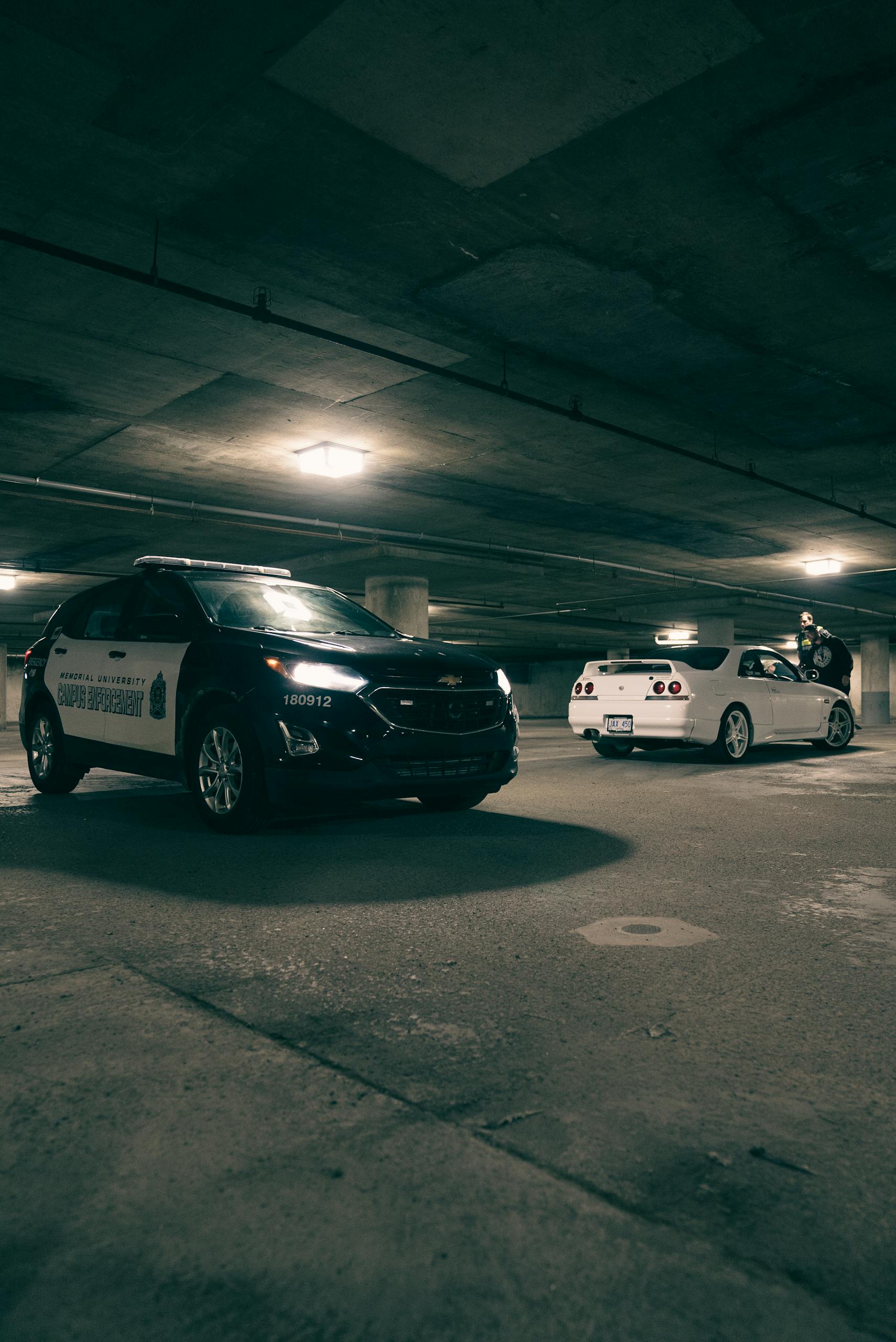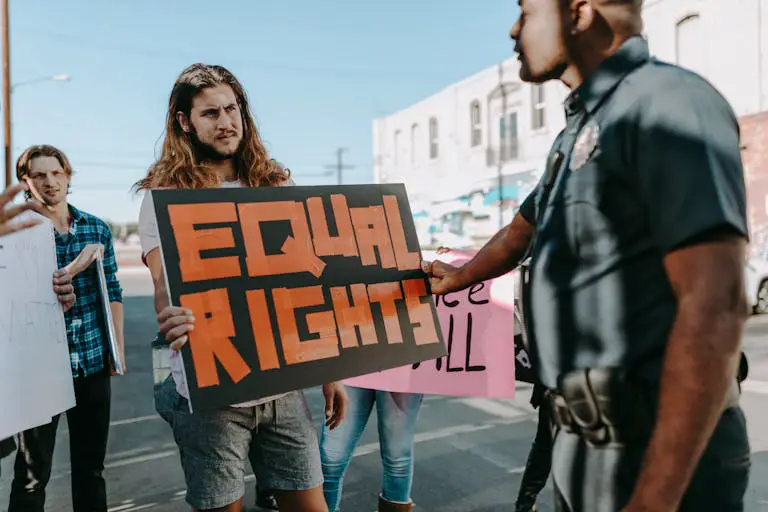Search Warrant Florida Secrets: 33 Things You Need to Know About Your Rights
In the complex world of criminal justice, understanding your rights regarding search warrants and vehicle searches is crucial. Whether you’re a concerned citizen or simply curious about the law, this comprehensive guide will shed light on search and seizure laws, with a special focus on Florida and other states. If faced with charges related to illegal searches, it is important to consult a criminal defense lawyer to challenge unlawfully obtained evidence and navigate legal proceedings.
Did you know:
- 🏠 In 2022, over 100,000 search warrants were issued in Florida alone.
- 🚗 Vehicle searches account for approximately 40% of all warrantless searches in the United States.
- ⚖️ The Fourth Amendment protects citizens against unreasonable searches and seizures, but exceptions exist, highlighting the protections provided by the United States Constitution.
Let’s dive into the 33 most pressing questions about search warrants and vehicle searches, providing you with the knowledge to protect your rights and navigate law enforcement interactions confidently
1) Are search warrants public in Florida?
Search warrants in Florida are generally considered public records once they have been executed and returned to the court. However, there are exceptions:
- Warrants related to ongoing investigations may be temporarily sealed.
- Certain sensitive cases (e.g., those involving minors) may have restricted access.
- Electronic access to warrant information may be limited to protect privacy.
To access public search warrant records, you can typically visit the clerk’s office of the county court where the warrant was issued.
2) How long does a search warrant last in Florida?
In Florida, a search warrant is typically valid for 10 days from the date of issuance. This means:
- Law enforcement must execute the warrant within this 10-day window.
- After 10 days, the warrant expires and becomes invalid.
- If needed, officers must obtain a new warrant after expiration.
It’s important to note that the actual search can continue beyond the 10-day period if it began within the valid timeframe.
3) What is the search and seizure law in Florida?
Florida’s search and seizure laws are primarily based on the Fourth Amendment of the U.S. Constitution and Article I, Section 12 of the Florida Constitution. Key points include:
- Searches and seizures must be reasonable and based on probable cause.
- Warrants are generally required, but exceptions exist (e.g., exigent circumstances, consent).
- Evidence obtained through illegal searches may be suppressed in court.
Florida law enforcement must adhere to these constitutional protections while conducting investigations and making arrests.
4) Do law enforcement officers need a warrant to search your car in Florida?
In Florida, as in most states, police generally do not need a warrant to search your car if they have probable cause. This is known as the “automobile exception” to the warrant requirement. However:
- Probable cause must be based on specific, articulable facts.
- The search must be limited to areas where the suspected evidence might be found.
- Consent can also allow for a warrantless search.
It’s crucial to understand that while warrantless searches of vehicles are permitted under certain circumstances, they are not unlimited in scope. If you are unsure about your rights or the legality of the search, it is advisable to seek legal counsel.
5) What do you say when a cop asks to search your car?
If a police officer asks to search your car, remember:
- You have the right to refuse a search.
- Politely state: “I do not consent to a search of my vehicle.”
- Ask if you are free to leave if you’re not under arrest. However, note that a search incident to a lawful arrest is deemed reasonable due to probable cause.
- Remain calm and respectful throughout the interaction.
Remember, consenting to a search waives your Fourth Amendment protections. It’s generally advisable to assert your rights politely but firmly.
6) When can police search your car in Florida?
Police in Florida can search your car without a warrant under several circumstances:
- You give consent to the search.
- A law enforcement officer has probable cause to believe evidence of a crime is in the vehicle.
- The search is incident to a lawful arrest.
- The vehicle is being impounded, allowing for an inventory search.
- The officer sees contraband in plain view.
It’s important to note that the scope of these searches may be limited based on the specific circumstances.
7) What is probable cause to search a vehicle in NC?
In North Carolina, probable cause to search a vehicle exists when:
- An officer has a reasonable belief that the vehicle contains evidence of a crime.
- This belief is based on specific, articulable facts and circumstances.
- The totality of the circumstances would lead a reasonable person to believe a crime has been or is being committed.
Examples might include the smell of drugs, visible contraband, or reliable information from a credible source.
8) What are the three types of vehicle searches?
The three main types of vehicle searches are:
- Consent Searches: When the driver or owner voluntarily agrees to a search.
- Probable Cause Searches: Based on police officers’ reasonable belief that the vehicle contains evidence of a crime.
- Inventory Searches: Conducted when a vehicle is lawfully impounded, to catalog its contents.
Each type of search has its own legal standards and limitations.
9) What do you say if a cop asks to search a car?
If a cop asks to search your car, you can respectfully assert your rights by saying:
- “Officer, I do not consent to any searches of my vehicle or belongings.”
- “Am I free to go, or am I being detained?”
- “If I’m not under arrest, I’d like to leave now.”
Remember to remain calm and polite, but firm in asserting your rights.
10) What is the vehicle exception rule in California?
The vehicle exception rule in California, similar to federal law, allows police to search a vehicle without a warrant if:
- They have probable cause to believe the vehicle contains evidence of a crime.
- The vehicle is readily mobile (which applies to most operational vehicles).
This exception is based on the inherent mobility of vehicles and the reduced expectation of privacy in cars compared to homes.
11) What is probable cause to search a vehicle in Ohio?
In Ohio, probable cause to search a vehicle exists when:
- An officer has a reasonable belief, based on specific facts and circumstances, that the vehicle contains evidence of a crime.
- The totality of the circumstances would lead a reasonable person to believe criminal activity is afoot.
Examples might include the odor of drugs, visible drug paraphernalia, or suspicious behavior coupled with other factors.
12) What is probable cause to search a vehicle in California?
Probable cause to search a vehicle in California requires:
- A reasonable belief that the vehicle contains evidence of criminal activity.
- This belief must be based on specific, articulable facts.
- The totality of the circumstances would lead a reasonable person to conclude that a crime has been or is being committed.
California courts have held that the smell of marijuana alone may not constitute probable cause due to its legalization for personal use.
13) What defines probable cause?
Probable cause is defined as:
- A reasonable belief, based on facts and circumstances, that a crime has been, is being, or will be committed.
- It requires more than mere suspicion but less than absolute certainty.
- The standard is whether a reasonable person would believe criminal activity is occurring based on the available information.
Probable cause is a fundamental concept in criminal law and is required for arrests, searches, and the issuance of warrants.
14) What is probable cause to search a vehicle in Texas?
In Texas, probable cause to search a vehicle exists when:
- An officer has a reasonable belief that the vehicle contains evidence of a crime.
- This belief is based on specific, articulable facts and circumstances.
- The totality of the circumstances would lead a reasonable person to believe criminal activity is present.
Texas courts have held that the odor of marijuana can contribute to probable cause, even with limited decriminalization in some jurisdictions.
15) What is probable cause to search a vehicle in Virginia?
Probable cause to search a vehicle in Virginia requires:
- A reasonable belief that the vehicle contains evidence of criminal activity.
- This belief must be based on specific, articulable facts.
- The totality of the circumstances would lead a reasonable person to conclude that a crime has been or is being committed.
Virginia courts have consistently held that the odor of marijuana can provide probable cause for a vehicle search.
16) Can you refuse a car search in the USA?
Yes, you can refuse a car search in the USA:
- You have the right to refuse consent to a search.
- Politely but firmly state: “I do not consent to any searches.”
- Ask if you’re free to leave if you’re not under arrest.
However, if the officer has probable cause or a warrant, they may still conduct a search despite your refusal. Refusing a search can help protect against an unlawful search.
17) What is an unreasonable search?
An unreasonable search is one that violates the Fourth Amendment protections:
- It’s conducted without a warrant, probable cause, or applicable exception.
- It invades a person’s reasonable expectation of privacy.
- The manner of the search is excessively intrusive or unjustified.
Courts determine the reasonableness of a search by balancing the government’s need for the search against the individual’s privacy rights.
18) What is a suspicious-looking vehicle?
A “suspicious-looking vehicle” is a subjective term that may include:
- Vehicles matching the description of one involved in a recent crime.
- Cars with heavily tinted windows or covered license plates.
- Vehicles parked in unusual locations or at odd hours.
- Cars exhibiting erratic driving patterns.
However, it’s important to note that a “suspicious” appearance alone does not provide probable cause for a search.
19) Can police search your car in VA?
In Virginia, police can search your car without a warrant if:
- They have probable cause to believe evidence of a crime is in the vehicle.
- You give consent to the search.
- The search is incident to a lawful arrest.
- The vehicle is being impounded (inventory search).
- Contraband is in plain view.
Virginia law generally follows federal Fourth Amendment standards for vehicle searches.
20) What is probable cause to search a vehicle in Wisconsin?
Probable cause to search a vehicle in Wisconsin exists when:
- An officer has a reasonable belief that the vehicle contains evidence of a crime.
- This belief is based on specific, articulable facts and circumstances.
- The totality of the circumstances would lead a reasonable person to believe criminal activity is present.
Wisconsin courts have held that the odor of marijuana can contribute to probable cause for a vehicle search.
21) What is the probable cause to search a vehicle in Illinois?
In Illinois, probable cause to search a vehicle requires:
- A reasonable belief that the vehicle contains evidence of criminal activity.
- This belief must be based on specific, articulable facts.
- The totality of the circumstances would lead a reasonable person to conclude that a crime has been or is being committed.
Illinois has decriminalized small amounts of marijuana, which may affect how courts view probable cause based solely on marijuana odor.
22) What happens when you say no to a search?
When you refuse a search:
- The officer must respect your refusal if they don’t have probable cause or a warrant.
- They may still conduct a search if they develop probable cause or have exigent circumstances.
- Your refusal cannot be used as the sole basis for probable cause.
- The officer may detain you briefly to investigate further if they have reasonable suspicion.
Remember, asserting your rights is not an admission of guilt.
23) What is the probable cause to search a vehicle in Tennessee?
Probable cause to search a vehicle in Tennessee exists when:
- An officer has a reasonable belief that the vehicle contains evidence of a crime.
- This belief is based on specific, articulable facts and circumstances.
- The totality of the circumstances would lead a reasonable person to believe criminal activity is present.
Tennessee courts have consistently held that the odor of marijuana can provide probable cause for a vehicle search.
24) What do you say if a police officer asks to search your car?
If a police officer asks to search your car, you can say:
- “Officer, I do not consent to any searches of my vehicle.”
- “Am I free to go, or am I being detained?”
- “If I’m not under arrest, I’d like to leave now.”
Remain calm, polite, and firm in asserting your rights.
25) How to answer “Do you mind if I search your vehicle?”
When an officer asks, “Do you mind if I search your vehicle?”, respond with:
- “Yes, I do mind. I do not consent to any searches.”
- “I respectfully decline to give consent for a search.”
- “Unless you have a warrant or probable cause, I do not consent to a search.”
Remember, it’s your constitutional right to refuse consent to a search.
26) Do you have to identify yourself to the police in Indiana?
In Indiana:
- You are required to identify yourself to the police if you’re stopped for an infraction or ordinance violation.
- During a Terry stop (investigative detention), you must provide your name if asked.
- You’re not required to carry or produce identification unless you’re driving a vehicle.
Failure to identify yourself when required can result in arrest in Indiana.
27) What is the probable cause to search a vehicle in Florida?
Probable cause to search a vehicle in Florida exists when:
- An officer has a reasonable belief that the vehicle contains evidence of a crime.
- This belief is based on specific, articulable facts and circumstances.
- The totality of the circumstances would lead a reasonable person to believe criminal activity is present.
Florida courts have held that the odor of marijuana can contribute to probable cause for a vehicle search, despite medical marijuana legalization.
28) How do I find out if I have a warrant in Jacksonville, Florida?
To check for warrants in Jacksonville, Florida:
- Visit the Duval County Clerk of Courts website (www.duvalclerk.com).
- Use the online case search function.
- Enter your name or case number.
- Check for any active warrants listed.
Alternatively, you can call the Jacksonville Sheriff’s Office warrant division directly.
29) How do I find out if someone has an active warrant in Florida?
To check for active warrants in Florida:
- Visit the Florida Department of Law Enforcement website (www.fdle.state.fl.us).
- Use the “Wanted Persons” search function.
- Enter the person’s name and other identifying information.
- Check county clerk websites for local warrants.
Remember, not all warrants may be publicly accessible online.
30) How to look up warrants in Lee County, Florida?
To look up warrants in Lee County, Florida:
- Visit the Lee County Sheriff’s Office website (www.sheriffleefl.org).
- Use the “Warrant Search” function.
- Enter the person’s name or case number.
- Review any listed active warrants.
You can also contact the Lee County Sheriff’s Office directly for assistance.
31) How long does it take for a warrant to be issued in Florida?
The time it takes for a warrant to be issued in Florida can vary:
- For routine cases, it may take a few days to a week.
- In urgent situations, warrants can be issued within hours.
- The process involves law enforcement preparing an affidavit, a judge reviewing it, and signing the warrant if probable cause is established.
Factors affecting timing include case complexity, court schedules, and the nature of the alleged crime.
32) What is an unreasonable search?
An unreasonable search is one that violates the Fourth Amendment:
- It’s conducted without a warrant, probable cause, or applicable exception.
- It invades a person’s reasonable expectation of privacy.
- The manner of the search is excessively intrusive or unjustified.
Courts determine reasonableness by balancing the government’s need against individual privacy rights.
33) Does the 4th Amendment apply to cars?
Yes, the Fourth Amendment applies to cars, but with some limitations:
- The “automobile exception” allows warrantless searches with probable cause.
- There’s a reduced expectation of privacy in vehicles compared to homes.
- Traffic stops are considered seizures under the Fourth Amendment.
- Vehicle searches must still be reasonable and based on probable cause or an exception.
The Supreme Court has recognized the unique nature of vehicles in Fourth Amendment jurisprudence.
Conclusion: Protecting Your Rights in the Digital Age
Understanding your rights regarding search warrants and vehicle searches is crucial in today’s complex legal landscape. While law enforcement has tools to investigate crimes, you have constitutional protections against unreasonable searches and seizures.
Remember:
- You have the right to refuse consent to searches.
- Probable cause is required for warrantless vehicle searches.
- Always remain calm and respectful when asserting your rights.
If you find yourself facing legal issues related to searches or seizures, it’s crucial to seek professional legal advice. Our partner network of experienced criminal defense attorneys can provide the guidance and representation you need to navigate these challenging situations.
Connect with a qualified criminal defense attorney in your area and get a free consultation today!
Stay informed, know your rights, and remember that asserting your constitutional protections is not an admission of guilt – it’s your right as a citizen.
For more detailed information on vehicle searches, be sure to check out our previous article: “Can Police Search Your Car Without a Warrant?” This companion piece provides an in-depth look at the specific circumstances under which law enforcement may conduct a warrantless search of your vehicle, offering valuable insights to complement the information in this guide.







